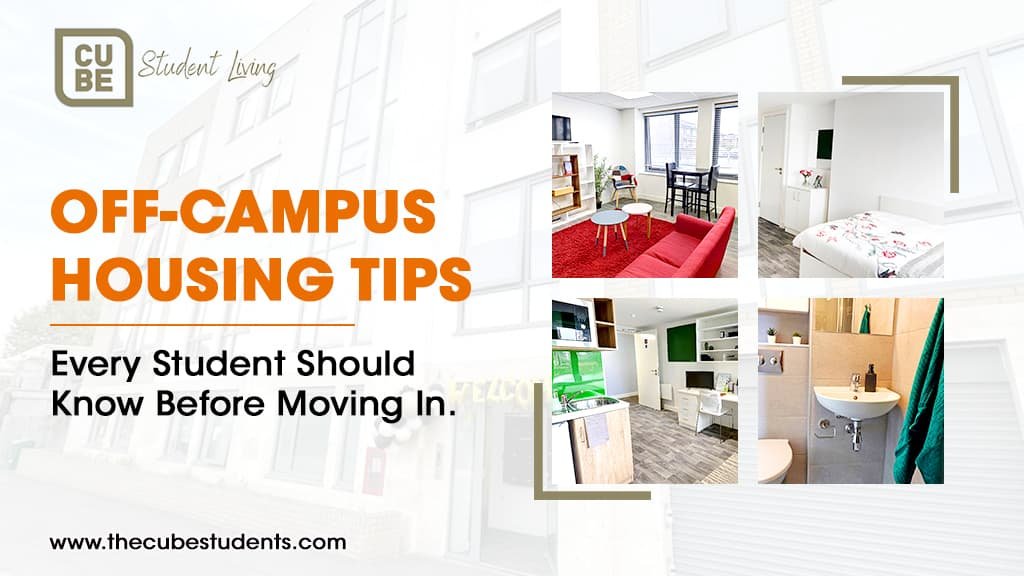Off campus housing is becoming increasingly popular among students seeking more independence and a personalized living experience. Choosing the right off campus accommodation involves more than just finding a place near campus—it requires careful planning and consideration. From understanding rental agreements and budgeting wisely to prioritizing safety and convenience, knowing what to look for can save you time, money, and stress. In this guide, we’ll share valuable tips every student should know before making the move, ensuring your transition from dorm life to your new off-campus home is as smooth and successful as possible..
Why Choose Off-Campus Housing?
Off-campus housing offers students more independence, flexibility, and privacy than dorms. It tends to be more affordable, particularly when living with roommates. With more space and the ability to personalize your living area, off-campus housing can create a more comfortable and convenient living experience during university years.
Benefits of Off-Campus Housing
- Cost Savings: In many cases, Off-campus housing is often less expensive than college dorms, particularly when splitting the rent with roommates.
- More Space and Privacy: Unlike dorms, off-campus housing usually has more living area, providing a greater feeling of privacy and comfort.
- Flexibility and Independence: Off-campus living offers greater freedom, such as fewer restrictions and the option to personalize your living space as desired.
- Kitchen Access: Having a full kitchen access means you can prepare your meals, which is cheaper than dining hall charges.
Potential Drawbacks to Consider
- Longer Commute: Depending on the location, off-campus housing may be farther from campus, requiring more time and money for commuting.
- Increased Responsibility: You’ll be responsible for tasks like paying rent on time, taking care of maintenance issues, and managing utilities.
How to Find Off-Campus Housing in London
Finding off-campus housing involves starting early and using reliable resources like online listings, university housing boards, and local rental agencies. Consider location, affordability, and safety while prioritizing amenities. Always inspect the property and read the terms before making a decision. Here’s how to get started:
Start Your Search Early
The earlier you start looking for off-campus housing, the better choice you’ll have. Try to begin looking around 2-3 months prior to the start of the semester. Many landlords start leasing their properties well in advance, and the more time you give yourself, the more likely you are to secure the best place.
Location, Location, Location
When selecting off-campus housing, location is crucial. A central location close to campus or public transportation can make life much easier. Consider the following factors when evaluating a potential location:
- Proximity to Campus: Look for housing that is within walking distance or a quick bus ride to campus. You will save time and money.
- Access to Public Transportation: If you’re not driving, make sure the area is well-connected by public transit.
- Safety: Investigate the safety of the neighborhood. You can view online crime databases or speak with existing residents for their opinions.
Review the Lease Agreement
Before you do anything, you need to properly read the lease agreement. Make sure you understand the terms and conditions to avoid surprises later. Be aware of the following:
- Rent and Due Dates: Be specific about how much you’ll pay each month and when it’s due.
- Security Deposit: Most landlords require a deposit before moving in. Make sure you understand the terms for its return.
- Lease Duration: Check the lease length—most student leases are for one year, but some might offer shorter-term agreements.
- Subletting Rules: If you think you might need to sublet your apartment during breaks or for other reasons, ensure that the lease allows for it.
Budgeting for Off-Campus Housing in London
When budgeting for off-campus housing, account for rent, utilities, internet, and transportation costs. Set aside funds for unexpected expenses and emergencies. Consider sharing costs with roommates to save money, and ensure your monthly expenses align with your income or allowances. Here’s what to consider to ensure you’re financially prepared:
Estimate Your Monthly Expenses
Living off-campus comes with a variety of costs, many of which you might not have encountered while living in university dorms. It’s essential to account for all potential expenses when planning your budget.
- Rent: This will be your main monthly cost. Ensure the rent is well within your budget.
- Utilities: Check if utilities like water, electricity, heating, and gas are included in the rent. If not, be prepared to pay them separately.
- Internet: Many off-campus properties require tenants to set up their own internet. Shop around for affordable, high-speed options.
- Transportation: If your housing isn’t close to campus, factor in public transportation or parking costs.
Setting Up Your Budget
- Track Your Income and Expenses: List all your income sources (e.g., part-time job, allowance) and estimate your monthly expenses.
- Emergency Fund: Always set aside a small emergency fund to cover unexpected costs like appliance repairs or medical emergencies.
- Roommate Responsibilities: If you’re living with roommates, make sure rent, utilities, and other shared costs are divided fairly.
What to Look for in Off-Campus Housing
When searching for off-campus accommodation, prioritize location, safety, and amenities like kitchen appliances and laundry facilities. Ensure the property is well-maintained, and check for issues like plumbing or electrical problems. Review the lease terms carefully before signing.
Key Amenities to Consider
- Furnished vs. Unfurnished: Some accommodation is fully furnished, but other accommodation may have you supply your own furniture. Decide what’s most suitable for your requirements and budget.
- Kitchen Appliances: Ensure the kitchen is equipped with basic appliances such as a refrigerator, stove, microwave, and dishwasher (if possible).
- Laundry Facilities: An in-unit washer and dryer is a big bonus, but if not, find out if there’s a laundry room or a laundromat close by.
Inspecting the Property
Before signing the lease, conduct a thorough inspection of the property. Make sure everything is in working order and that the place is clean and well-maintained. Look for:
- Water Pressure and Plumbing: Test the faucets and shower to ensure everything works properly.
- Electrical System: Check outlets, light fixtures, and appliances to ensure no electrical problems exist.
- Pest Infestation: Inspect for pest infestation such as rodents or insects.
Off-Campus Housing Safety Tips
For off-campus housing safety, ensure the property has secure locks, well-lit areas, and a reliable alarm system. Research neighborhood crime rates, and always be aware of your surroundings. Get to know neighbors, and consider living near campus for added security. Here are some safety features to look for and tips to follow:
Check for Security Features
- Locks and Alarms: Ensure all doors and windows have strong locks, and check if there is an alarm system in place.
- Lighting: Adequate lighting around the property is crucial, especially near entrances, stairwells, and parking areas.
- CCTV: Some properties are equipped with surveillance cameras, which can help ensure your safety.
Personal Safety Tips
- Research Crime Rates: Look up crime statistics in the area using online tools or talk to current students about their experiences.
- Stay Aware: Always be aware of your surroundings, especially when walking at night or entering your building.
- Build Relationships with Neighbors: Getting to know your neighbors can create a safer and more supportive environment.
Moving In: What You Need to Know
Once you’ve found your perfect place, it’s time to move in. Here are some tips for a smooth transition:
Packing for Your Move
- Essential Items: Pack only what you need initially. Essentials include bedding, toiletries, a few kitchen supplies, and cleaning products.
- Furniture: If your unit is unfurnished, consider purchasing second-hand furniture to keep costs down. Look for local listings or university bulletin boards for affordable options.
Setting Up Utilities
- Electricity, Water, Gas: Contact utility companies to set up accounts in your name before moving in.
- Internet: Ensure you have reliable internet for studying and staying connected with friends and family.
Conclusion
Finding and moving into off-campus housing doesn’t have to be overwhelming. By following these tips, budgeting carefully, and ensuring that you select a safe, comfortable place to live, you’ll be set up for a successful and enjoyable student experience. Off-campus housing can be a great opportunity to gain independence, save money, and live in a space that’s uniquely yours.
How early should I start looking for off-campus housing?
It’s best to start looking at least 2-3 months before the semester begins to give yourself enough time to find a good place.
How can I negotiate rent with my landlord?
Don’t hesitate to ask for a rent reduction or additional perks (like free parking or access to amenities) if you’re signing a long-term lease.
Are there hidden costs with off-campus housing?
Yes, be sure to account for utilities, internet, parking fees, and maintenance costs, which may not be included in the rent.
How do I find off-campus housing near campus?
Use your university’s housing office or website to access recommended listings. Websites like Zillow, Apartments.com, and local rental agencies also provide great options.
What should I look for when signing a lease?
Pay attention to the lease duration, rent amount, included utilities, and rules about subletting or guests. Don’t forget to check for penalties related to late rent payments.

